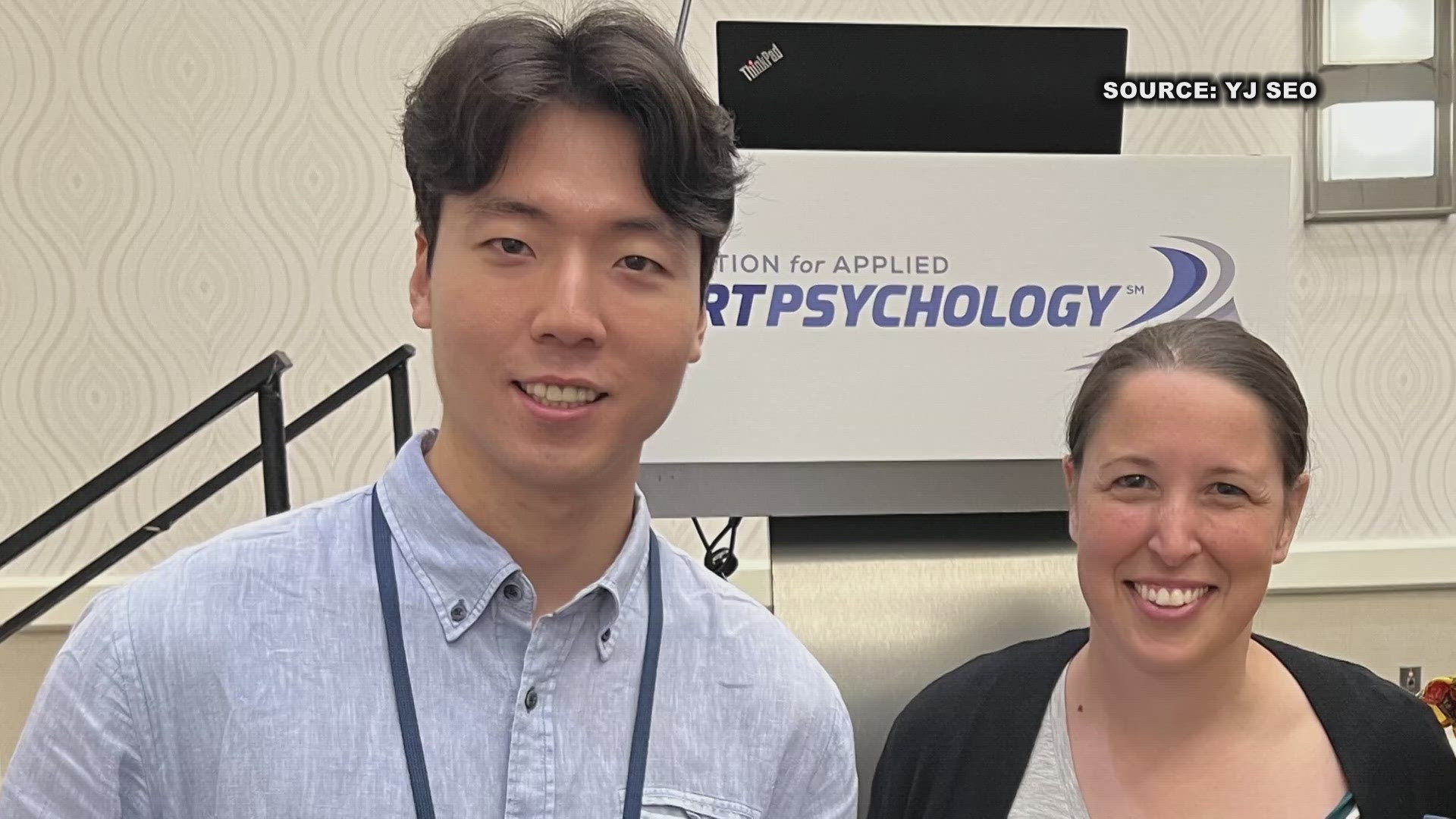GREENSBORO, N.C. — A former Olympian, studying at the University of North Carolina at Greensboro, is changing the game for athletes after sports.
YJ Seo is a doctoral student at UNCG.
Seo began playing ice hockey at just six years old. By 20 years old, Seo worked his way up, competing in the 2018 Winter Olympics on the South Korean team.
He said that was the highlight of his career. While it took countless hours to train every day and get to the world stage, he said stepping off of it was the biggest challenge.
"I reached my goal, my dream goal and it was nice because I always had to try so hard and spend every day to reach that goal," said Seo. "But then as soon as the event finished, there was something really empty and nothing left."
Seo said he didn't realize the transition, from athletics to finding a new career, would come with adverse consequences.
"I wasn't aware that the transition is that difficult," he said. "I didn't know that a lot of athletes go through that transition and there are a lot of adverse consequences."
He said it's not just the change from structured workouts and diets, but that athletes lose their health care system, like having athletic trainers, mental health specialists, and teammates being a support system.
"Athletes inevitably have to face the termination of their career one day and the reason I got so interested is that I didn't want athletes to experience what I have experienced before and I think there are ways to promote, like facilitate more adaptive transition," he said. "The most challenging thing during the transition that I can remember is I didn't know how to introduce myself, so when I played hockey I always introduced myself to people saying 'I play hockey, I am on this team, and I played hockey for this many years,' but then as soon as I transitioned out of sports and when people asked me 'What do you do?' I was like, 'I don't play hockey anymore, but I used to play but now I'm a student,' but it was hard for me to really introduce who I am."
While Seo is still working to redefine who he is, he is researching ways for athletes to transition out of sports in a more proactive way.
"I'm still in the transition process and in the process of redefining who I am," he said. "I don't know when this will finish or if it will ever finish, but I think this is one of the topics that still has to be defined in research."
Seo said he is working to develop strategies, programs, and intervention opportunities to help athletes understand the transition process well. He hopes to take his research and turn it into policies for programs around the world to better support athletes.
"When I was going through that transition by myself, and with my wife, I didn't I wasn't sure if it's just me, or if it's for everyone," he said. "I thought I was the only one that was going through this transition, that it was this hard and difficult."
Seo said between the different categories and levels of sports, each is being looked at differently at what the needs would be.
"There are a lot of differences between sports, different types of sports, gender, race, and also social-cultural differences and I want to apply what I've learned to the Korean context too because they lack awareness and there is not much support of that in their area in Korea," he said.
Seo said even in the Olympics, there is no help for athletes right now and that's something he wants to change for all athletes across the world.
"My future goal is to develop strategies, programs, and intervention research to help student-athletes understand the transition process well, and because this transition process is very nuanced and complex, a lot of support from interdisciplinary effort is needed," he said. "One of the papers that we published this year shows that not only do we need social support from like, not only within a sport and outside of sport, but also from athletic trainers, and mental health support, and everything because as student-athletes in the U.S. when they leave this structured sports system, they also lose healthcare systems, like older former teammates, their athletic trainer where they always reached out when they have a problem, they lose everything so I think I hope my research and endeavor help mend the gap and help future athletes transition."

